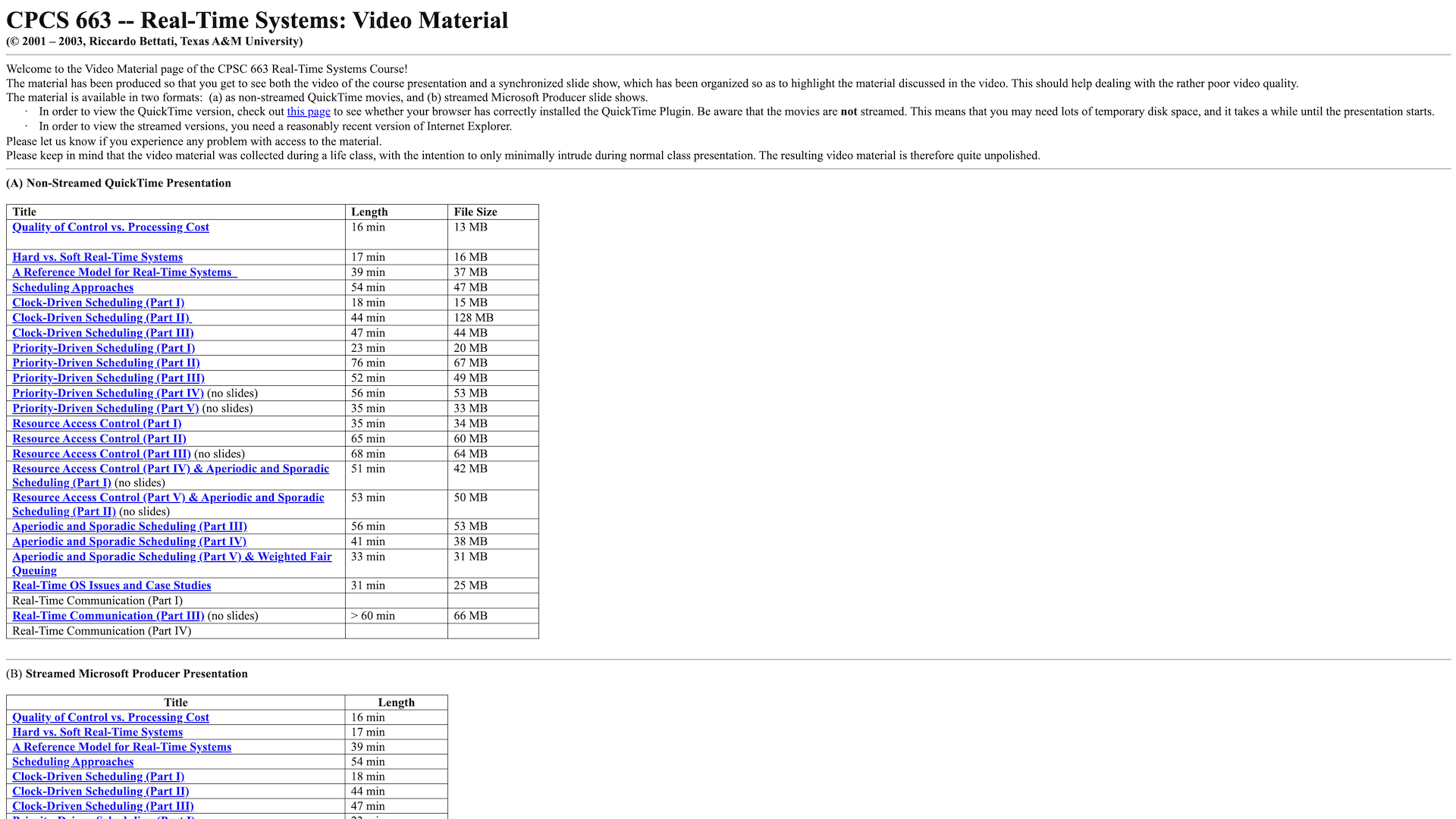Real-Time Systems: Video Material | CPCS 663 - TAMU
Explore the CPCS 663 Real-Time Systems course at Texas A&M University with comprehensive video material, covering topics like quality of control, scheduling approaches, and more.
Introduction
The CPCS 663 Real-Time Systems course at Texas A&M University provides video material to help students better understand the course content. The video material includes both video recordings of the course presentations and synchronized slide shows, which aim to enhance the learning experience despite the poor video quality.

Highlights
- The video material is available in two formats: non-streamed QuickTime movies and streamed Microsoft Producer slide shows.
- The video covers a wide range of topics, including quality of control vs. processing cost, hard vs. soft real-time systems, a reference model for real-time systems, scheduling approaches, clock-driven scheduling, and priority-driven scheduling.
- The video material is designed to complement the in-class presentation, providing students with an additional resource to review and reinforce the concepts discussed.
Recommendation
This course is recommended for students interested in real-time systems, embedded systems, and system design. The video material provides a valuable supplement to the course, allowing students to revisit the lectures and deepen their understanding of the subject matter.
How GetVM Works
Learn by Doing from Your Browser Sidebar

Access from Browser Sidebar
Simply install the browser extension and click to launch GetVM directly from your sidebar.

Select Your Playground
Choose your OS, IDE, or app from our playground library and launch it instantly.

Learn and Practice Side-by-Side
Practice within the VM while following tutorials or videos side-by-side. Save your work with Pro for easy continuity.
Explore Similar Hands-on Tutorials
Great Ideas in Computer Architecture | Machine Structures | UC Berkeley
22Computation Structures | Digital Systems Design | Hardware-Software Intersection
28Introduction to the Internet: Architecture and Protocols | CS 168 - UC Berkeley
28Systems Programming | C Language | UNIX/Linux
13Distributed Systems | CS 425 - Univ of Illinois, Urbana-Champaign
3Cloud Computing | Cornell University CS 5412
12Computer Architecture | CSCI 360 | CUNY Hunter College
22Parallel Computing | CSCI 493.75 - CUNY Hunter College
25Programming for Performance | ECE 459 - University of Waterloo
21Discover categories